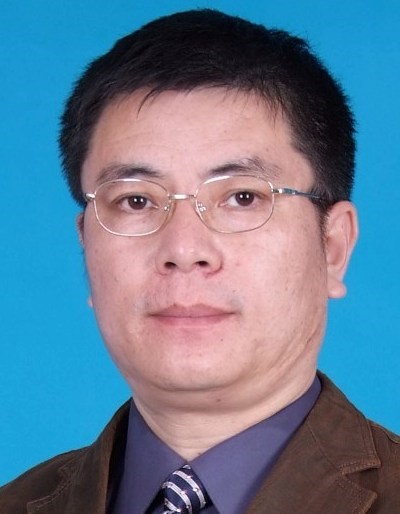
Jerry Chun-Wei Lin received his Ph.D. from the Department of Computer Science and Information Engineering, National Cheng Kung University, Tainan, Taiwan in 2010. He is currently a full Professor with the Department of Computer Science, Electrical Engineering and Mathematical Sciences, Western Norway University of Applied Sciences, Bergen, Norway. He has published more than 500+ research articles in refereed journals (with 60+ ACM/IEEE transactions journals) and international conferences (IEEE ICDE, IEEE ICDM, PKDD, PAKDD), 16 edited books, as well as 33 patents (held and filed, 3 US patents). His research interests include data mining and analytics, natural language processing (NLP), soft computing, IoTs, bioinformatics, artificial intelligence/machine learning, and privacy preserving and security technologies. He is the Editor-in-Chief of the International Journal of Data Science and Pattern Recognition, the Associate Editor for IEEE TNNLS, IEEE TCYB, IEEE TDSC, INS, JIT, AIHC, IJIMAI, HCIS, IDA, PlosOne, IEEE Access, and the Guest Editor for several IEEE/ACM journals such as IEEE TFS, IEEE TII, IEEE TIST, IEEE JBHI, ACM TMIS, ACM TOIT, ACM TALLIP, and ACM JDIQ. He has recognized as the most cited Chinese Researcher respectively in 2018, 2019, 2020, and 2021 by Scopus/Elsevier. He is the Fellow of IET (FIET), ACM Distinguished Member (Scientist), and IEEE Senior Member.
Abstract:TBA.

Rui Yang received the B.Eng. degree in Computer Engineering and the Ph.D. degree in Electrical and Computer Engineering from National University of Singapore. He is currently an Associate Professor in the School of Advanced Technology, Xi’an Jiaotong-Liverpool University, Suzhou, China, and an Honorary Lecturer in the Department of Computer Science, University of Liverpool, Liverpool, United Kingdom. His research interests include machine learning based data analysis and applications. He is the author or co-author of several technical papers and also a very active reviewer for many international journals and conferences. Dr. Yang is currently serving as an Associate Editor for Neurocomputing and International Journal of Network Dynamics and Intelligence.
Abstract: TBA.

Xie Ming received the B.Eng degree in control and automation engineering from East-China Institute of Textile Technology (now, under the name of Donghua University, Shanghai, China). Subsequently, as a recipient of the nation's prestigious overseas scholarship of Chinese government, he has completed the postgraduate studies and doctorate research works, and has received the Master degree from the University of Valenciennes (France) in 1986 as well as the PhD degree from the University of Rennes (France) in 1989. Since 1986, he has worked as Research Assistant at IRISA-INRIA Rennes, Expert Engineer at INRIA Sophia-Antipolis, Lecturer/Senior Lecturer/Associate Professor of Nanyang Technological University, Fellow of Singapore-MIT Alliance (SMA) (Affiliated with Innovation in Manufacturing Systems and Technology Program), Guest Professor of Huazhong University of Science and Technology (2002, 2006), Professor awarded by China's Jiangsu Provincial Government (2014), and Dean of College of Electrical Engineering and Control Science at Nanjing Tech University (2014-2016). He was the General Chair of 2007 International Conference on Climbing and Walking Robots (CLAWAR), the General Chair of 2009 International Conference on Intelligent Robotics and Applications (ICIRA), the Co-founder of the International Journal of Humanoid Robotics (SCI/SCIE indexed), Co-founder of Singapore-China Association for Advancement of Science and Technology, Co-founder of Robotics Society of Singapore. He has taught the courses such as Robotics, Artificial Intelligence, Applied Machine Vision, Measurement and Sensing Systems, Microprocessor Systems, and University Physics. In terms of scientific research, he has authored three books in English, two books in Chinese, two edited books in English, several book chapters, over 10 patents of invention, over 40 research papers in scientific journals and over 100 research papers in international conferences. He was the recipient of one best conference paper award from World Automation Congress, the recipient of one best conference paper award from CLAWAR, the recipient of one outstanding paper award from International Journal of Industrial Robot, the recipient of one Gold Prize (S$8K) from CrayQuest, the recipient of one Grand Champion Prize (S$15K) from CrayQuest, the recipient of one A-Star's Best Research Idea Prize (S$5K), the recipient of one Silver Medal from Dragon Design Foundation. .
Abstract:TBA